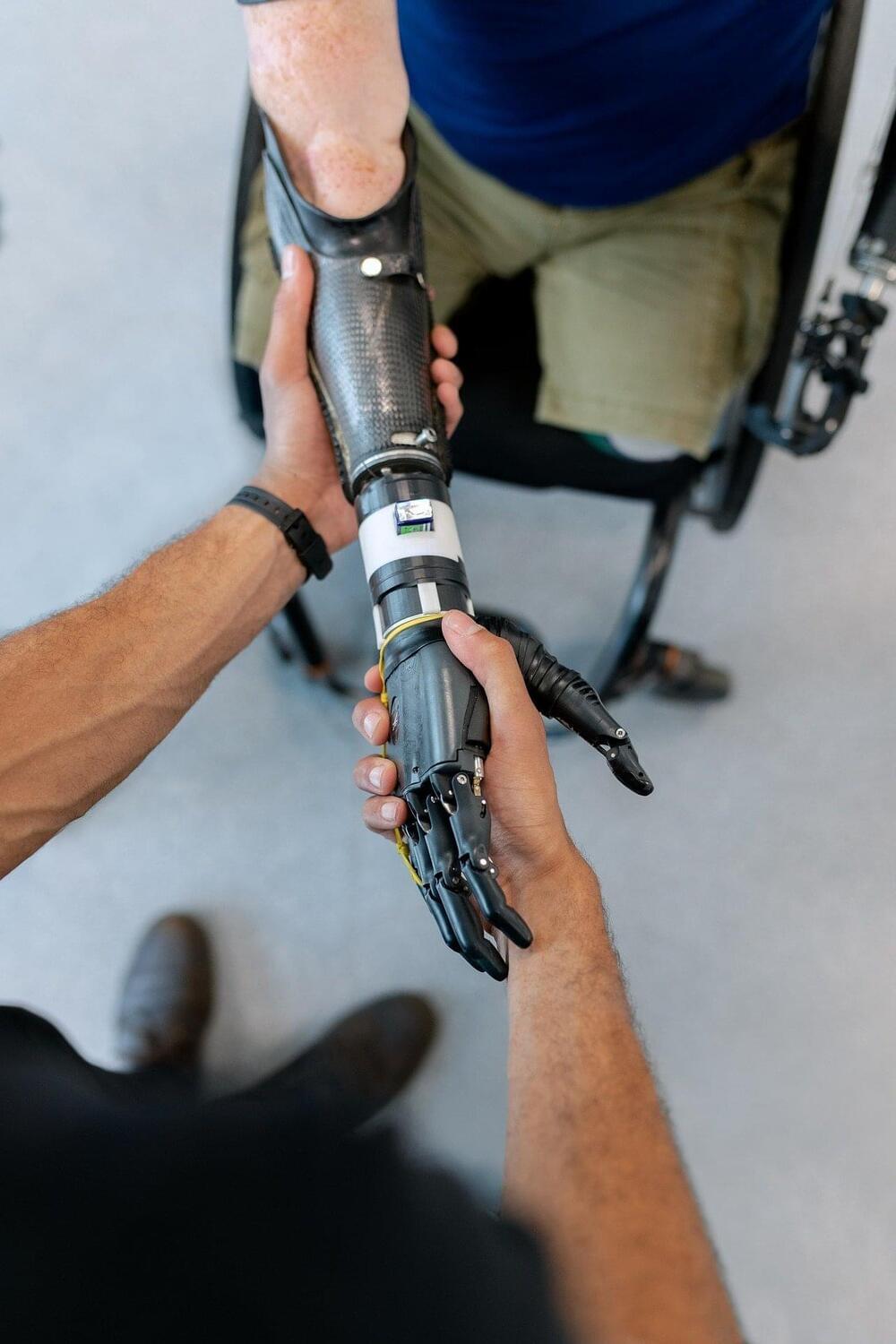PATREON https://www.patreon.com/transhumania.
MINDS : https://www.minds.com/transhumania.
FACEBOOK https://www.facebook.com/Transhumania-260675131517616/
Dr. Yuval Noah Harari, macro-historian, Professor, best-selling author of “Sapiens” and “Homo Deus,” and one of the world’s most innovative and exciting thinkers, has a few hypotheses of his own on the future of humanity.
He examines what might happen to the world when old myths are coupled with new godlike technologies, such as artificial intelligence and genetic engineering.
Harari tackles into today’s most urgent issues as we move into the uncharted territory of the future.
According to Harari, we are probably one of the last generation of homo sapiens. Within a century earth will be dominated from entities that are not even human, intelligent species that are barely biological. Harari suggests the possibility that humans are algorithms, and as such Homo sapiens may not be dominant in a universe where big data becomes a paradigm.
Robots and AI will most likely replace us in our jobs once they become intelligent enough.
Although he is hopeful that AI might help us solve many problems, such as healthcare, climate change, poverty, overpopulation etc, he cautions about the possibility of an AI arms race.
Furthermore Dr. Yuval Noah Harari suggests this technology will also allow us to upgrade our brains and nervous systems. For example, humans will be able to connect their minds directly to the internet via brain implants.
CRISPR Gene editing therapy is used for the first time in living humans with amazing results.
— About ColdFusion –
ColdFusion is an Australian based online media company independently run by Dagogo Altraide since 2009. Topics cover anything in science, technology, history and business in a calm and relaxed environment.
ColdFusion Discord: https://discord.gg/coldfusion.
Podcast: https://open.spotify.com/show/3dj6YGjgK3eA4Ti6G2Il8H
ColdFusion Music Channel: https://www.youtube.com/channel/UCGkpFfEMF0eMJlh9xXj2lMw.
ColdFusion Merch:
Studying The Atoms Of Perception, Memory, Behavior and Consciousness — Dr. Christof Koch, Ph.D. — Chief Scientist, MindScope Program, Allen Institute.
Dr. Christof Koch, Ph.D. (https://alleninstitute.org/what-we-do/brain-science/about/te…stof-koch/) is Chief Scientist of the MindScope Program at the Allen Institute for Brain Science, originally funded by a donation of more than $500 million from Microsoft founder and philanthropist Paul G. Allen.
With his B.S. and M.S. in physics from the University of Tübingen in Germany and his Ph.D. from the Max-Planck Institute for Biological Cybernetics, Dr. Koch spent four years as a postdoctoral fellow in the Artificial Intelligence Laboratory and the Brain and Cognitive Sciences Department at MIT, and from 1987 until 2,013 was a professor at Caltech, from his initial appointment as Assistant Professor, Division of Biology and Division of Engineering and Applied Sciences, to his final position as Lois and Victor Troendle Professor of Cognitive & Behavioral Biology.
Dr. Koch joined the Allen Institute for Brain Science as Chief Scientific Officer in 2011 and became it’s President in 2015.
Dr. Koch’s passion are neurons, or what he refers to as the atoms of perception, memory, behavior and consciousness, including their diverse shapes, electrical behaviors, and their computational function within the mammalian brain, in particular in neocortex, and he leads the Allen Institute for Brain Science effort to identify all the different types of neurons in the brains of mice and humans – known as their cell census effort.
Professor Stefan Lorenz Sorgner talks about his new book, ‘We Have Always Been Cyborgs’. Find out more about the book: https://bristoluniversitypress.co.uk/we-have-always-been-cyborgs.
“With an encyclopaedic knowledge of transhumanism and a deep philosophical grounding, especially in Nietzschean thought, Stefan Sorgner tackles some of the most challenging ethical issues currently discussed, including gene editing, digital data collection, and life extension, with uncommon good sense and incisive conclusions. This study is one of the most detailed and comprehensive analyses available today. Highly recommended for anyone interested in transhumanist/posthumanist ideas and in these issues generally.” N. Katherine Hayles, University of California, Los Angeles.
“An eye-opening, wide-ranging and all-inclusive study of transhumanism. Sorgner’s account avoids both the utopian trap and the bogeyman spectre. He makes a compelling case for placing ourselves on the transhuman spectrum. How we continue to use technologies is in our hands. Sorgner’s book is both a comprehensive introduction to transhumanist thought and a clear-sighted vision for its future realisation.” Julian Savulescu, University of Oxford.

For people with motor impairments or physical disabilities, completing daily tasks and house chores can be incredibly challenging. Recent advancements in robotics, such as brain-controlled robotic limbs, have the potential to significantly improve their quality of life.
Researchers at Hebei University of Technology and other institutes in China have developed an innovative system for controlling robotic arms that is based on augmented reality (AR) and a brain-computer interface. This system, presented in a paper published in the Journal of Neural Engineering, could enable the development of bionic or prosthetic arms that are easier for users to control.
“In recent years, with the development of robotic arms, brain science and information decoding technology, brain-controlled robotic arms have attained increasing achievements,” Zhiguo Luo, one of the researchers who carried out the study, told TechXplore. “However, disadvantages like poor flexibility restrict their widespread application. We aim to promote the lightweight and practicality of brain-controlled robotic arms.”

Evolutionary genomics approach identifies genes that enable plants to live in the Atacama Desert, offering clues for engineering more resilient crops to face climate change.
An international team of researchers has identified genes associated with plant survival in one of the harshest environments on Earth: the Atacama Desert in Chile. Their findings, published in Proceedings of the National Academy of Sciences (PNAS), may help scientists breed resilient crops that can thrive in increasingly drier climates.
“In an era of accelerated climate change, it is critical to uncover the genetic basis to improve crop production and resilience under dry and nutrient-poor conditions,” said Gloria Coruzzi, Carroll & Milton Petrie Professor in the New York University (NYU) Department of Biology and Center for Genomics and Systems Biology, who co-led the study with Rodrigo Gutiérrez.
The first artificial Lab-Grown Meats have recently gotten into stores and markets for everyone to buy and eat. But until now, those meats were largely just chicken nuggets or similar types of meat. But with Future Meat Technologies’ latest crazy invention, this has changed. They managed to create a system that actually involves Artificial Intelligence, which grows almost 5,000 fully-fledged hamburgers a day without the environmental impact or regular food and meat.
Cultured meat is meat produced by in vitro cell cultures of animal cells (as opposed to meat obtained from animals). It is a form of cellular agriculture.
Cultured meat is produced using many of the same tissue engineering techniques traditionally used in regenerative medicines. It’s also occasionally called lab grown meat.
–
Every day is a day closer to the Technological Singularity. Experience Robots learning to walk & think, humans flying to Mars and us finally merging with technology itself. And as all of that happens, we at AI News cover the absolute cutting edge best technology inventions of Humanity.
If you enjoyed this video, please consider rating this video and subscribing to our channel for more frequent uploads. Thank you! smile
–
TIMESTAMPS:
00:00 The Best Burger of the Future.
01:29 History of Future Meat Technologies.
02:53 How Cultured Meat is made.
04:37 Where you can buy cultured Meat.
05:52 Advantages of Cultured Meat.
07:44 Last Words.
–
#weird #food #cultured

It’s the dog days of summer. You bite down on a plump, chilled orange. Citrus juice explodes in your mouth in a refreshing, tingling burst. Ahh.
And congratulations—you’ve just been vaccinated for the latest virus.
That’s one of the goals of molecular farming, a vision to have plants synthesize medications and vaccines. Using genetic engineering and synthetic biology, scientists can introduce brand new biochemical pathways into plant cells—or even whole plants—essentially turning them into single-use bioreactors.
“De-Extinction” Biotechnology & Conservation Biology — Ben Novak, Lead Scientist Revive & Restore
Ben Novak is Lead Scientist, at Revive & Restore (https://reviverestore.org/), a California-based non-profit that works to bring biotechnology to conservation biology with the mission to enhance biodiversity through the genetic rescue of endangered and extinct animals (https://reviverestore.org/what-we-do/ted-talk/).
Ben collaboratively pioneers new tools for genetic rescue and de-extinction, helps shape the genetic rescue efforts of Revive & Restore, and leads its flagship project, The Great Passenger Pigeon Comeback, working with collaborators and partners to restore the ecology of the Passenger Pigeon to the eastern North American forests. Ben uses his training in ecology and ancient-DNA lab work to contribute, hands-on, to the sequencing of the extinct Passenger Pigeon genome and to study important aspects of its natural history (https://www.youtube.com/watch?v=pK2UlLsHkus&t=1s).
Ben’s mission in leading the Great Passenger Pigeon Comeback is to set the standard for de-extinction protocols and considerations in the lab and field. His 2018 review article, “De-extinction,” in the journal Genes, helped to define this new term. More recently, his treatment, “Building Ethical De-Extinction Programs—Considerations of Animal Welfare in Genetic Rescue” was published in December 2019 in The Routledge Handbook of Animal Ethics: 1st Edition.
Ben’s work at Revive & Restore also includes extensive education and outreach, the co-convening of seminal workshops, and helping to develop the Avian and Black-footed Ferret Genetic Rescue programs included in the Revive & Restore Catalyst Science Fund.